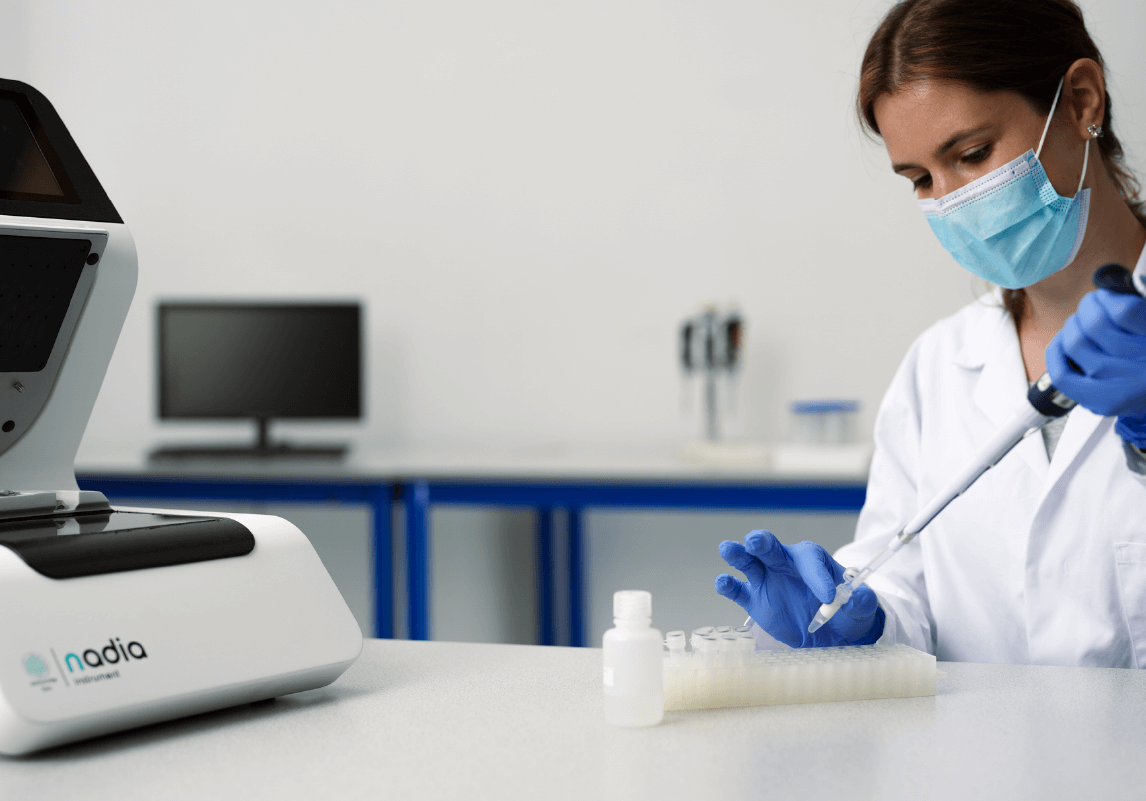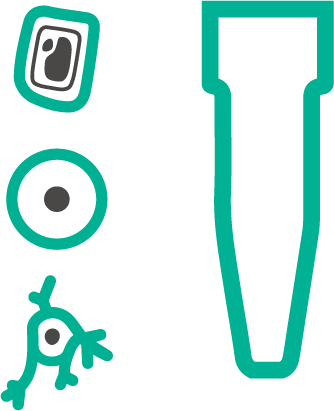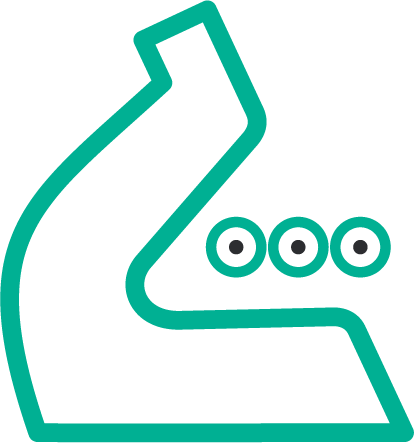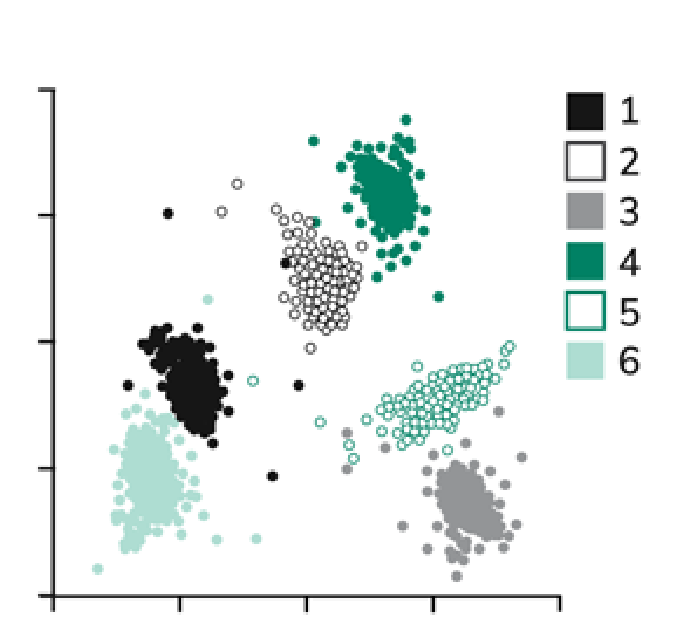We recently announced the launch of our new RNAdia kit for single cell research. Find out how RNAdia, together with the Nadia Instrument, forms a high quality, low cost, complete solution for single cell RNA-Sequencing.
Innovative discoveries with single cell research
In the last few years single cell research has developed into one of the most successful emerging fields in clinical and academic research. Since the establishment of single cell RNA-sequencing (scRNA-Seq) over 10 years ago (Tang et al. 2015), a plethora of new single cell applications and technologies have made their way into our labs. Researchers are still uncovering the many possibilities of single cell research and the role it can play in precision medicine, vaccine development and so much more.
However, the key to exciting new discoveries comes at a price. While there are many factors that influence the price of single cell research, which we discuss in depth in this blog, one of the foremost reasons is the cost of reagents.
Cutting the reagent price tag in half with RNAdia
What could you achieve with your research if you were able to spend less time worrying about the cost of getting a single cell workflow up and running in your lab?
A major bottleneck in single cell RNA-Sequencing (scRNA-Seq) experiments is the price of commercially available reagent kits. This is a barrier that Dolomite Bio has sought to break down with the launch of the new RNAdia kit.
The RNAdia kit for scRNA-Seq on the Nadia platform offers world-class results at 50% of the cost of competitor reagents. Together with the Nadia platform, the RNAdia kit offers a high quality, low cost, complete solution for single cell sequencing.
In a hurry? Skip to the Q&A section for some quick facts about RNAdia.
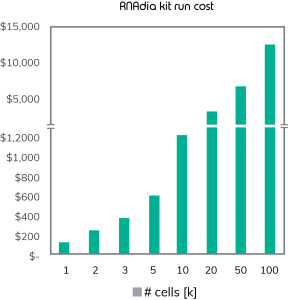
By reducing the cost for scRNA-Seq reagents by 50% to comparable products on the market, Dolomite Bio hopes this will enable more scientists than ever to access the rapidly expanding field of single cell research.
Significant savings in reagent cost will also allow researchers to run more samples and choose the cell number and sequencing depth they truly need, to push the boundaries of single cell research even further.
RNAdia in a nutshell
- Transcriptomic insight for single cells.
- Low cost—Cost of reagents are 50% less than comparable products in the field.
- Extremely high-throughout—capture over 50k cells in one run.
- Throughput flexibility—through subsampling analyse just a few hundred cells for a pilot study or over 50k cells for larger studies.
- No bioinformatic knowledge required—We take care of your data analysis for you.
- Streamlined workflow-go from sample encapsulation to amplified cDNA libraries in as little as 6h, allowing you to concentrate on cell preparation if necessary.
- Very high sample compatibility—through sample buffer flexibility and broad cell size range.
A complete workflow- RNAdia and the Nadia platform
End-to-end workflow—with our RNAdia kits and bioinformatic service you have everything you need to go from cells to data
Q&A – the most important facts about RNAdia right here:
Which reagents for the single cell sequencing workflow does the RNAdia kit contain?
The RNAdia kit contains reagents for all steps from sample encapsulation, cDNA library preparation, PCR amplification to NGS-library preparation.
When will the RNAdia kit be available for order?
RNAdia kits are available now! Just request a quote here and we will get in touch!
What is the required sequencing depth for RNAdia kits?
The sequencing depth will depend upon sample type (different RNA content) and the experimental question asked. For new sample types we can recommend an average of 25k read pairs. If you are unsure which read-depth to choose please get in touch with our support team.
How many samples and how many cells can be sequenced with one RNAdia kit?
RNAdia kit contain enough reagents for 8 samples or a total of over 50k cells.
Is there a limit to cell size on the Nadia Instrument?
Nadia can process cells of over 50µm and those with different buffer requirements such as cardiomyocytes and plant cells which are typically much larger than 50µm in diameter.
How do I analyse my single cell data?
Single cell transcriptomic data can be analysed using open-source pipelines, commercially available software or using our in-house service for data analysis. You can purchase data analysis and visualization from Dolomite Bio as you can a kit.
What sample types are compatible with the Nadia Instrument?
The Nadia Instrument and its associated RNAdia kit are compatible with a very wide range of sample types owing to its flexibility in sample buffers and broad cell size range. Species that have been tested internally and published range from mammals, fungi and plants and are sourced from primary tissue and model organisms.

